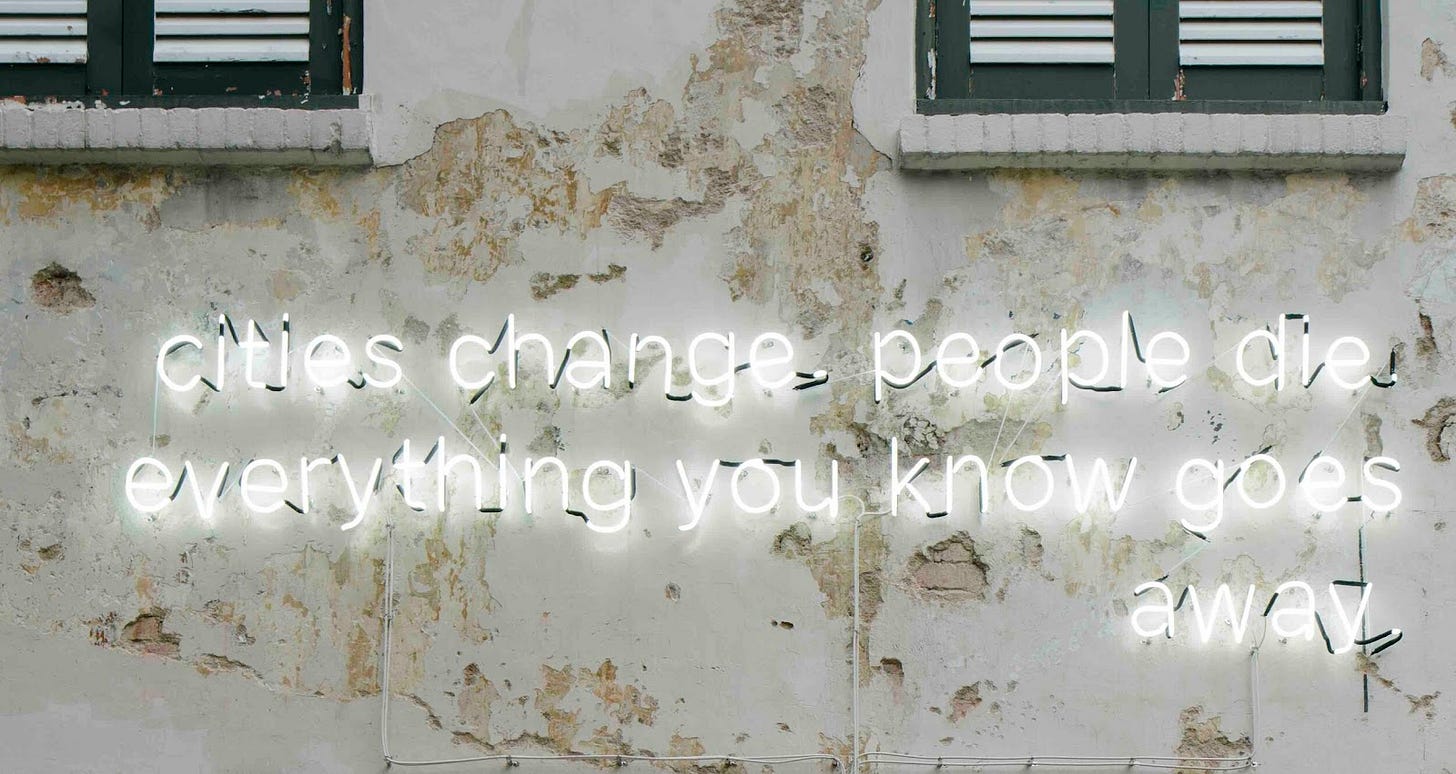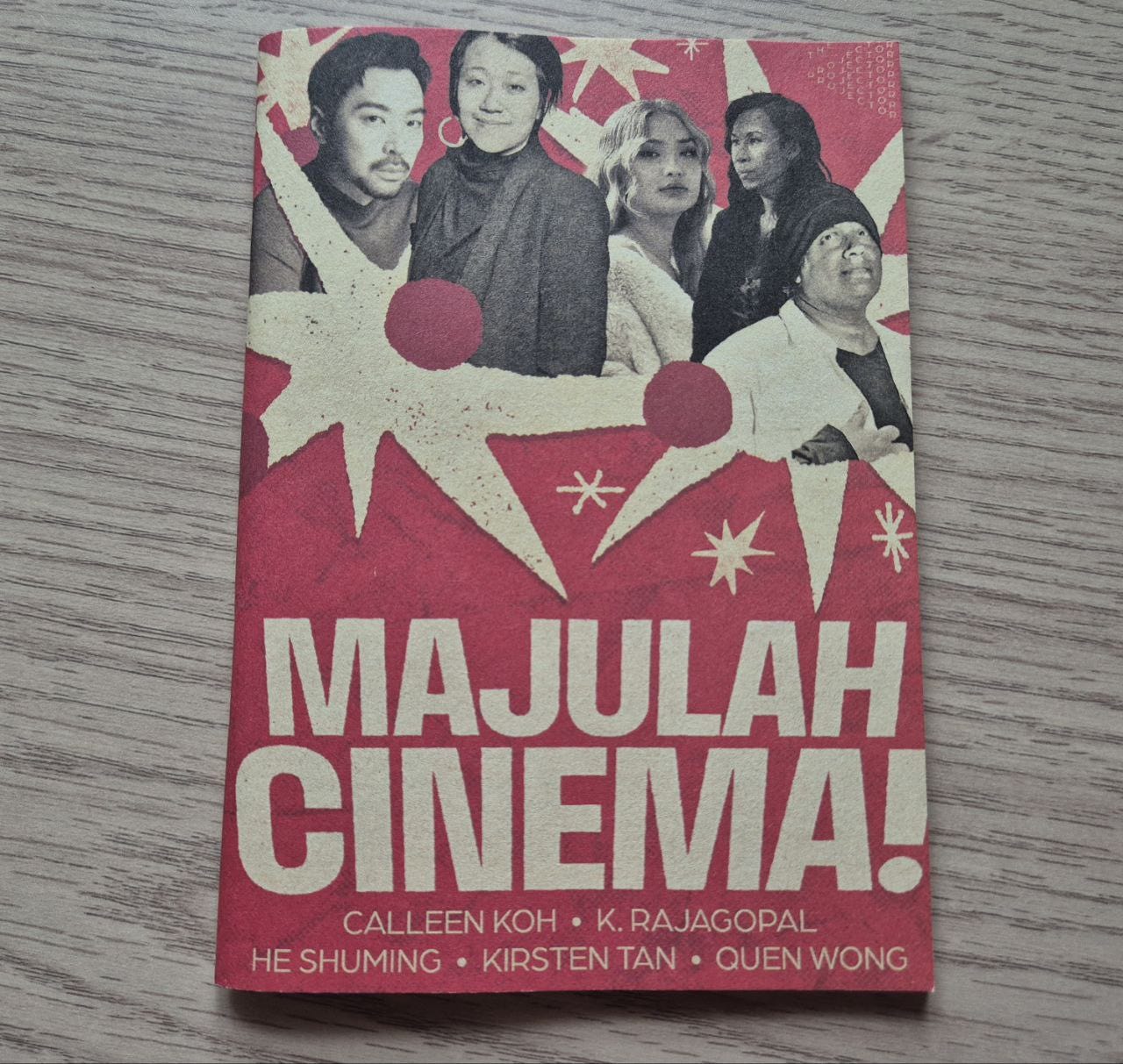no place for the pictures
The Projector could not find a way to survive. What killed it?
redrum
On Sunday, August 17, 2025, I watched Mike Leigh’s Naked with some friends in the Redrum at The Projector at Golden Mile Tower. We’d been getting together to watch movies at various venues in Singapore, but The Projector was the most frequently visited by us as a group. This group had been thrown together for us to watch a movie together a year ago: The Grand Budapest Hotel, also at The Projector. We’ve been watching movies together ever since.
Two days later, The Projector was shuttered abruptly, citing financial difficulties and changing audience habits. For those reading from outside Singapore: it was the only independent cinema in Singapore running regular screenings of independent and classic films. It lasted 11 years which, all things considered, was a very good run.
On that Sunday, we didn’t know it would be the last time we’d watch a film in those old theatres, or that it’d be the last time I’d pick up a ticket stub at The Projector. Or that it’d be the last time I ordered concessions from the bar.
On 23 August, 2025, they held one last party for The Projector. It was thronged with people. I’d never really connected with The Projector as a space for partying. I came for the movies. It felt like we were dancing on the corpse at a funeral, but I accept that everyone grieves differently, for different things.
As the party died down, I commiserated with different groups of cinephiles I’d connected with over the years. Many came to pay their respects. For those in their 20s and 30s, The Projector had always existed throughout most of their cinephilia. A cinephilia that The Projector fed with movies that let us see ourselves and our city against a myriad of other possibilities and stories.
And The Projector gave us more than the movies; it gave us each other.
The outpouring of grief, anger, and frustration from the closure of The Projector is understandable. There is violence here. It feels appropriate that my last screening at The Projector was in the REDRUM: it feels like a murder, but who holds the axe?
writing on the wall (state approved)
When I first returned from my studies to Singapore, my first internship was at The Substation. In my time there, the exhibition series I helped out with was called: Cities change. People die. Everything you know goes away.
I didn’t know it at the time, but in my time working in the arts in Singapore, that exhibition title has remained relevant. It seems obvious that cities must change, because the times they remain a-changing. However, growing up, you never realise how palpable change can feel. How your environment can lose vital infrastructure and it can feel like someone has taken a kidney.
We know the arts community across its many disciplines is small in Singapore. You would think that means we are in the process of building something bigger and that there is no way but up. Yet, our engagement with our arts and heritage is so intertwined with loss. How can we cope with loss when we already have so little? How can we build anything when it feels like the tide washes everything away just as we are beginning?
People die, that much is certain. We think cities will outlast us, and somehow this one is dying faster before we can reach middle age.
The Substation lost its physical space back in 2021. The government said it was because it was building something newer, bigger and better. I’ve walked past that space multiple times since 2021 with its facade still hidden behind hoarding. Nothing is going on there. What purpose does an empty building serve? The only squatters we seem to allow are ghosts, and when they serve the national narrative we’ll build gigantic, gaudy homes for them to haunt whether they like it or not.
gross proceedings
Singapore’s number one trait is its free market economy, something our government is immensely proud of, and is the chief reason Singapore is where it is today. We are ranked numero uno in the world in terms of economic freedom. Because of this, money flows in and out easily, fairly, and all the requisite numbers go up. Every dollar is treated fairly in Singapore, arguably more so than the people in it.
This free market economy, and its value, is predicated on the absolute faith that pegging every resource to a market-dependent dollar value is fair and moral. That the right business, the ones that can maintain a healthy lifeblood of capital flow, have earned the right to live. Life and death, both corporate and human, is dependent on supply and demand. When demand dries up, you deserve to die.
Make no mistake: money is not moral. Do we decide the value of cities, people, and things solely based on their monetary value? Their capacity to generate profit or maintain productivity? Can you really compare the value of a cinema to a museum to a grocery store to a restaurant to a Grab to a factory to a clinic to a hair salon to a mall to a hawker stall by their balance sheets?
If left to its own devices, capital's only goal, like a virus, is to replicate and expand. It will trade one asset for another to chase larger margins. When every asset is made interchangeable because we trust their market-dictated monetary valuations, we make people, history, and culture interchangeable for profits, asset valuations, and corporate acquisitions.
When your country is run by technocrats, who are themselves so enriched by the policies and directions they pursue that they cannot see past the numbers, they will make that trade for us every single time. GDP go brrrrrr means everything is going according to plan. The city remains sparkling clean, new high rises block out the sun, and investors keep calling, all while the cultural rot takes root, and when the sinkhole finally opens we will see that the value was imaginary all along.
everything you know gets taken away
The final pamphlet I picked up from The Projector is this one. I never keep these. I guess I'll keep this one.
It is plainly ironic that this now dead programme of films was named to jointly commemorate this nation’s birthday in August, and Singaporean cinema that has just had one of its lights dimmed while the nation soldiers on toward supposedly more important (profitable) goals. Majulah Singapura means Onward Singapore, but onward to what? Our country is obsessed with progress. Progress towards a “better” Singapore, but are we good yet? Singapore, where are you trying to go? We’re all already here.



